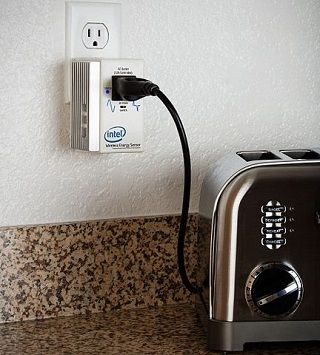From Guest Blogger Hannah Whittenly: How Much Can Smart, Energy-Efficient Appliances Really Save You?

To tackle this question, we talked to appliance experts from Atlas Appliances Ltd. They had a few bits of valuable information regarding this topic:
Consider replacing the appliances in your home and watch how much money you begin to save on your electric bills. Replacing home appliances such as refrigerators, dishwashers. Washers and dryers can account for savings of nearly 15% of your home’s energy budget.
If you are getting ready to move or remodel, or considering replacing older appliances within your home, save some money by purchasing energy efficient appliances.
Each appliance will come with 2 separate purchase prices; the first displays the initial cost of the appliance, and the second refers to the operating cost over its potential lifetime. Basically, you are paying second cost annually, through the lifespan of that appliance on your power bill.
Most appliances now come with a yellow Energy-Guide tag to assist you in estimating an operating cost for that particular appliance. Purchasing an ENERGY STAR®- appliance cuts the second price-tag down because it will save money in the long-term. In actual fact, Energy efficient-certified washers as well as refrigerators provide an additional 20% energy efficiency over the standard appliance models of their kind. Energy efficient dishwashers typically use around 5.5 gallons, per cycle or less of water, while dishwashers bought prior to 1994, will sometimes use in access of 10 gallons of water, per each washing cycle.
The operation of your appliance will also affect any potential savings, in a major way every month. You can cut back greatly on appliance cost per month, by following the simple methods below.
- Only run the dishwasher once you have a completely full load.
- Scrape food off your dishes before loading as opposed to rinsing the food off.
- Air-dry your dishes instead of heat-dry (button supplied on my dishwashers) will help in cutting back on energy used by the dishwasher.
- For laundry, use only cold water if possible instead or warm or hotter settings.
- Dry your towels or heavy-cottons separately, washing lighter-weight clothing together.
- Refrigerator seals should be airtight – Shut the door over a sheet of paper or $1 bill, if paper pulls out effortlessly, adjustments or seals may need be replaced.
Typically the energy efficient appliances may initially cost more, but will save much more money in the end. Most key appliances will last from 10 to 20 years, so appliances that are more efficient end-up paying for themselves; lowering your monthly energy costs.
